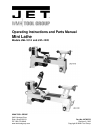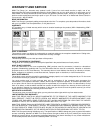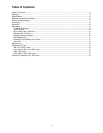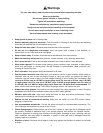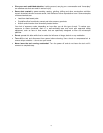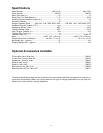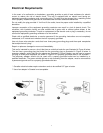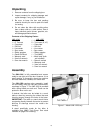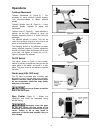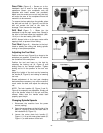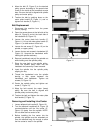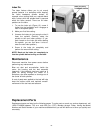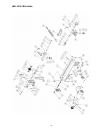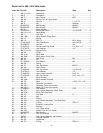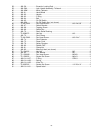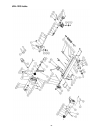
4
Warning
For your own safety, read this instruction manual before operating the lathe.
Wear eye protection.
Do not wear gloves, necktie, or loose clothing.
Tighten all locks before operating.
Rotate the workpiece by hand before applying power.
Rough out the workpiece before installing on the faceplate.
Do not mount a split workpiece or one containing a knot.
Use the lowest speed when starting a new workpiece.
• Keep guards in place and in working order.
• Remove adjusting keys and wrenches. Form the habit of checking to see that keys and adjusting
wrenches are removed from the tool before turning it on.
• Keep the work area clean. Cluttered areas and benches invite accidents.
• Do not use in a dangerous environment. Don’t use power tools in damp or wet locations, or
expose them to rain. Keep work area well lighted.
• Keep children away. All visitors should be kept a safe distance from the work area.
• Make the workshop child proof with padlocks, master switches, or by removing starter keys.
• Don’t force the tool. It will do the job better and safer at the rate for which it was designed.
• Wear proper apparel. Do not wear loose clothing, gloves, neckties, rings, bracelets, or other jewelry
which may get caught in moving parts. Nonslip footwear is recommended. Wear protective hair
covering to contain long hair.
• Don’t overreach. Keep proper footing and balance at all times.
• Use the proper extension cord. Make sure your extension cord is in good condition. When using an
extension cord, be sure to use one heavy enough to carry the current you product will draw. An
undersize cord will cause a drop in the line voltage resulting in loss of power and overheating. For
runs up to 25 feet, use an 18 AWG or larger gauge cord. For runs up to 50 feet, use a 16 AWG
or larger gauge cord. For runs up to 100 feet, use a 14 AWG or larger gauge cord. For runs up
to 150 feet, use a 12 AWG or larger gauge cord. Runs over 150 feet are not recommended. If in
doubt, use the next heavier gauge. The smaller the gauge number, the heavier the cord.
• Always use safety glasses. Also use face or dust masks if the cutting operation is dusty. Everyday
eyeglasses only have impact resistant lenses, they are NOT safety glasses.
• Maintain tools with care. Keep tools sharp and clean for best and safest performance. Follow
instructions for lubricating and changing accessories.
• Reduce the risk of unintentional starting. Make sure the switch is in the OFF position before
plugging in the machine.
• Use recommended accessories. Consult the owner’s manual for recommended accessories. The
use of improper accessories may cause a risk of injury.
• Check damaged parts. Before further use of the tool, a guard or other part that is damaged should
be carefully checked to determine that it will operate properly and perform its intended function.
Check for alignment of moving parts, binding of moving parts, breakage of parts, mounting, and any
other conditions that may affect its operation. A guard or other part that is damaged should be
properly repaired or replaced.
• Direction of feed. Feed work into a blade or cutter only against the direction of rotation of the blade
or cutter.



